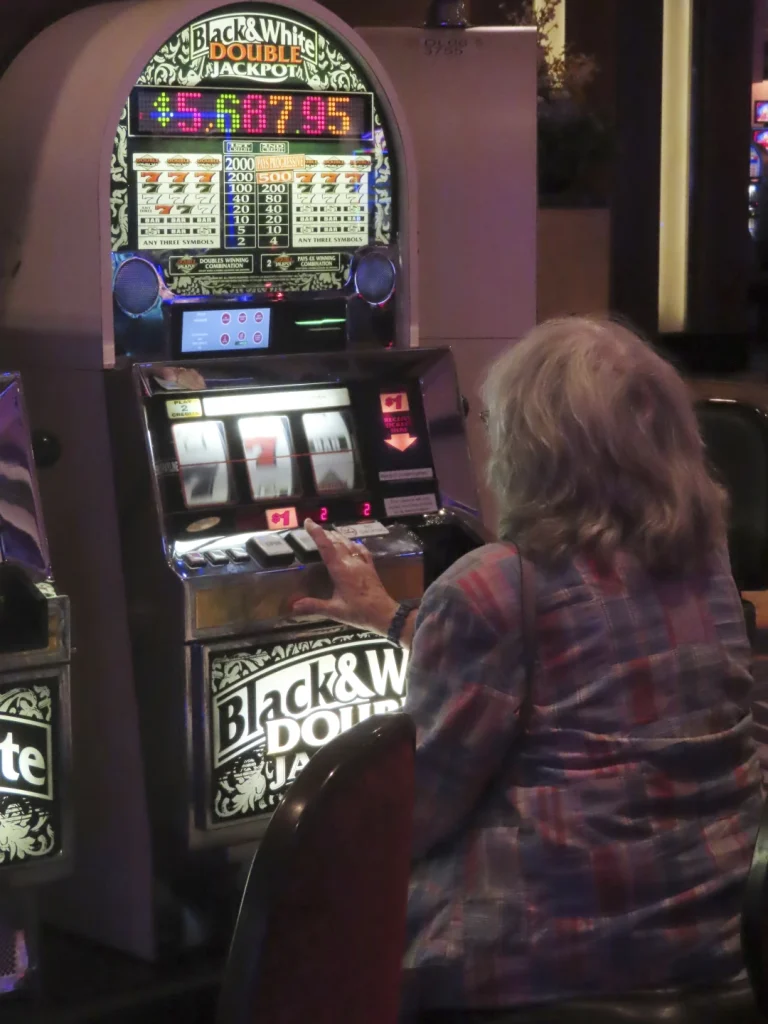Atlantic City, New Jersey, has long been known as a hub for gambling and entertainment, with its casinos drawing in visitors from all over the country.
However, recent figures released by the New Jersey Division of Gaming Enforcement have shown that the city’s casinos have experienced a decline in profitability in 2023, despite the state’s booming online gambling market.
The nine casinos collectively reported a gross operating profit of $744.7 million in 2023, which represents a decline of 1.6% from the previous year.
When two internet-only entities affiliated with several of the casinos are included, the decline in profitability was even more significant, at 4.1% on earnings of $780 million.
While all nine casinos were profitable in 2023, only three saw an increase in profitability. This suggests that it is becoming more expensive for New Jersey’s casinos to operate, and that patron spending may not be keeping pace.
According to Jane Bokunewicz, director of the Lloyd Levenson Institute at Stockton University, which studies the Atlantic City gambling market, the same forces that might be tightening visitors’ purse strings – such as inflation and increased consumer prices – are also forcing operators to dig deeper into their pockets.
Bokunewicz notes that higher operational costs, including increased wages and more costly goods, combined with increased spending on customer acquisition and retention, have not been offset by as significant an increase in consumer spending as the industry had hoped for.
This suggests that the industry may need to reevaluate its strategies for attracting and retaining customers, particularly in light of the ongoing battle over whether smoking should continue to be allowed in Atlantic City’s casinos.
A group of casino workers has been pushing state lawmakers for over three years to pass a law eliminating a provision in New Jersey’s indoor smoking law that exempts casinos.
This new tactic is likely to take into account the recent figures released by the New Jersey Division of Gaming Enforcement, which suggest that the industry may be facing significant challenges in the years to come.

Overall, the decline in profitability for Atlantic City’s casinos is concerning, particularly given the importance of the industry to the city’s economy.
While the state’s booming online gambling market has provided some relief, it is clear that the industry will need to adapt to changing economic conditions and consumer behavior if it hopes to remain profitable in the long term.
In recent news, the issue of smoking bans in casinos has sparked a legal battle between employees, represented by the United Auto Workers Union, and the casino establishments themselves.
The crux of the matter lies in the potential competitive disadvantage that the casinos fear they may face if smoking is prohibited within their premises.
On the other hand, workers point to a study showcasing the success of casinos in states where smoking bans are in place. This essay delves into the intricacies of this debate, examining the financial implications, operational statistics, and broader implications of smoking bans on the casino industry.
The financial landscape of the Atlantic City casino industry provides valuable insights into the potential effects of smoking bans.
The reported operating profits of key casinos paint a nuanced picture. For instance, the Borgata boasted the largest operating profit at $226.1 million, experiencing a modest increase of 1.3%.
In contrast, other casinos such as Hard Rock and Tropicana witnessed declines in their profits. Notably, the study referenced by the workers indicates that casinos in states with smoking bans are outperforming their counterparts that allow smoking.
This raises questions about the validity of claims made by casinos regarding revenue losses due to smoking restrictions.
Beyond financial figures, operational statistics shed light on the performance of casinos in Atlantic City. The occupancy rates of casino hotels in 2023, averaging at 73%, saw a slight decrease from the previous year.

Hard Rock stood out with the highest average occupancy rate of 88.8%, underscoring its popularity among visitors. In contrast, Golden Nugget recorded the lowest occupancy rate at 53.8%, signaling potential challenges faced by certain establishments.
Moreover, the average room rates in Atlantic City casino hotels varied significantly, with Ocean commanding the highest average rate and Golden Nugget offering the lowest. These statistics reflect the diverse landscape of the casino industry in Atlantic City and hint at the complexities of the market dynamics.
The debate surrounding smoking bans in casinos extends beyond financial and operational considerations. It touches upon broader societal issues such as public health, worker rights, and economic sustainability.
While casinos argue that smoking bans may lead to revenue losses and job cuts, workers advocate for a healthier and more productive work environment. The contractual agreements that granted workers substantial pay raises in 2022 further complicate the situation, as casinos navigate the delicate balance between profitability and employee welfare.
Additionally, the impact of the COVID-19 pandemic on casino profits underscores the volatility and resilience of the industry in the face of external challenges.
In conclusion, the ongoing legal battle over smoking bans in Atlantic City casinos encapsulates a multifaceted dilemma with far-reaching implications.
By examining the financial, operational, and broader societal aspects of this issue, we gain a comprehensive understanding of the complexities at play.

As the debate unfolds, stakeholders must carefully weigh the competing interests of casinos, workers, and the public to chart a path forward that ensures sustainable growth and equitable outcomes for all involved.
Only through informed dialogue and evidence-based decision-making can the casino industry in Atlantic City navigate the challenges posed by smoking bans and emerge stronger and more resilient in the years to come.
